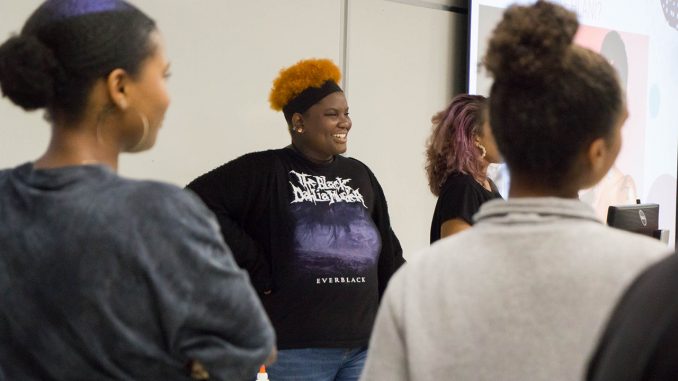
Rayonna Hobbs, a sophomore journalism major, often thinks about how to combine their love for writing and their passion for LGBTQ rights.
“I don’t want to feel like I have to choose between either or, I want to see if I can fuse the two,” Hobbs said. “And if I can’t, I’ll make my own space and do it.”
In order to do this, they enrolled in the LGBT studies minor offered in the Gender, Sexuality and Women’s Studies program.
The minor analyzes gender, sexuality, and sexual orientation so students become familiar with concepts, theories, history, literature and socio-political issues concerning the LGBTQ community.
Temple is one of 26 universities nationwide acknowledged for offering this minor, according to the College Equality Index, which focuses on LGBTQ issues in higher education.
Brad Windhauser, an associate professor in the GSWS program, was recruited three years ago to help build the LGBT minor program. Although the program is more than 10 years old, there are still a lot of people who aren’t aware it’s offered at Temple, he said.
To expose the program to more students, Windhauser attends events like National Coming Out Week, and meets with student organizations.
The most challenging part was creating classes for the LGBT minor, Windhauser said.
“It was about making the courses accessible but also academically rigorous,” he said. “For example, in our [LGBTQ Novels of the 21st Century] course, we wanted to include different approaches but also different protagonists, because we have our eye on intersectionality.”
Students who are not queer-identifying can still benefit from taking classes offered in the program, Hobbs said.
“Even though I am queer-identifying, I am still learning about my own community’s history,” they added. “Minors like this and classes like this give people the opportunity to learn about not only themselves but people who are different from them.”
Hobbs’ favorite part about the minor is meeting both students and professors in the LGBTQ community.
“My [Sexuality and Gender] professor uses they/them pronouns, and it was on the syllabus and everyone uses their pronouns correctly,” Hobbs said. “For me, that was like, ‘Wow.’”
It’s these connections that Windhauser finds to be one of the most rewarding aspects of the program.
“Many students in class will say, I like the use of the ‘we,’ like this is how we feel, and I’m part of this community,” he said.


Be the first to comment